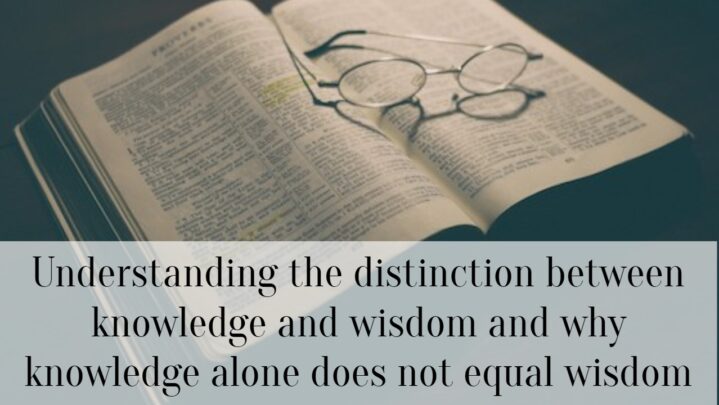Although they are two different ideas, knowledge and wisdom are frequently used interchangeably. Wisdom is the capacity to apply knowledge in a helpful and just way.
Consider a person who has read numerous books on a subject but has never put that information into practice to see how knowledge and wisdom differ. This person might have subject-matter expertise, but they might not necessarily be wise since they lack the experience and discretion to put their knowledge to use in a real-world situation. On the other hand, a person with little expertise in a field but the capacity to use what they know. A sensible approach is beneficial and practical.
Furthermore, wisdom cannot be guaranteed by knowledge alone, which can come from a combination of sources, including formal education, training, and personal experiences. On the other hand, wisdom is frequently attained through experiences, contemplation, and the capacity for thinking through the effects of one’s actions.
Making wise judgments and conclusions based on various considerations, such as ethics, values, and empathy, is another essential quality of wisdom. A smart person recognizes the value of evaluating the long-term effects of their actions and decisions, and they take precautions to ensure they benefit not only themselves but also those around them.
In conclusion, despite having some similarities, knowledge, and wisdom are distinct ideas. Knowledge can be obtained from various sources, but wisdom is the sensible and advantageous application of that knowledge.





